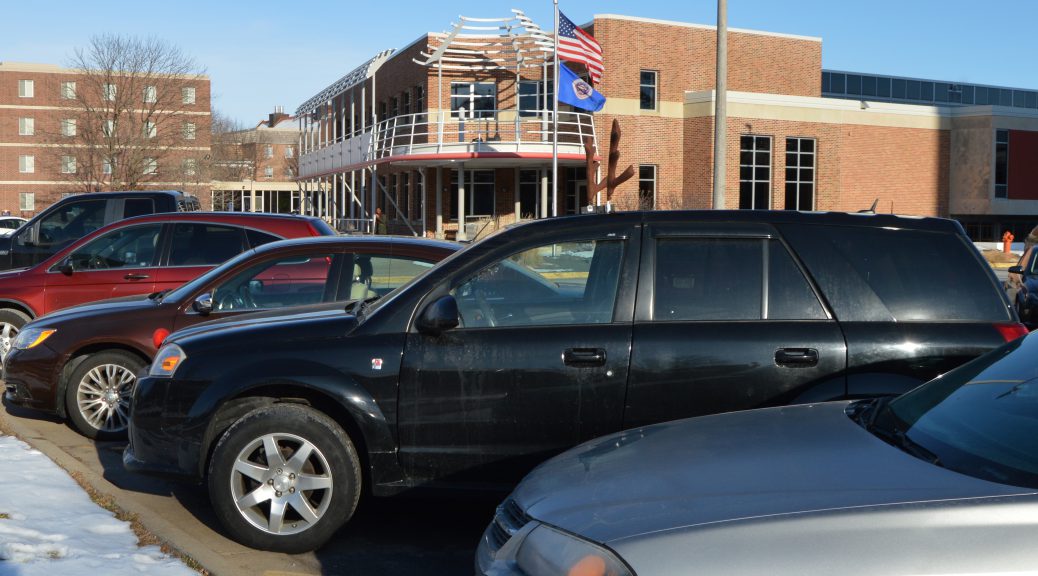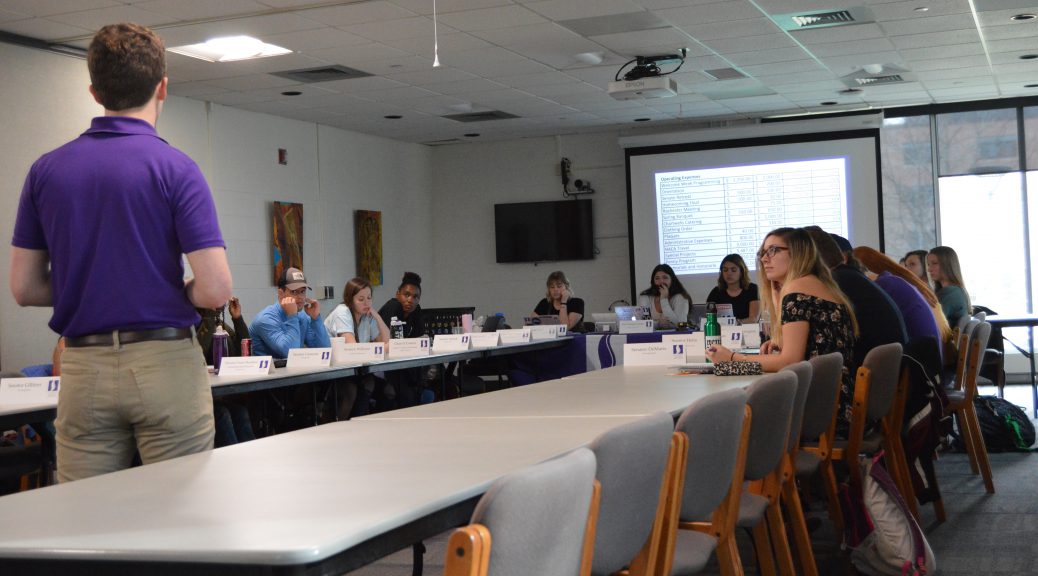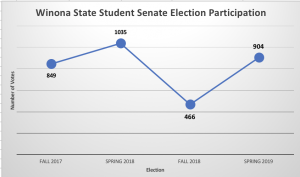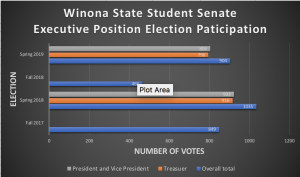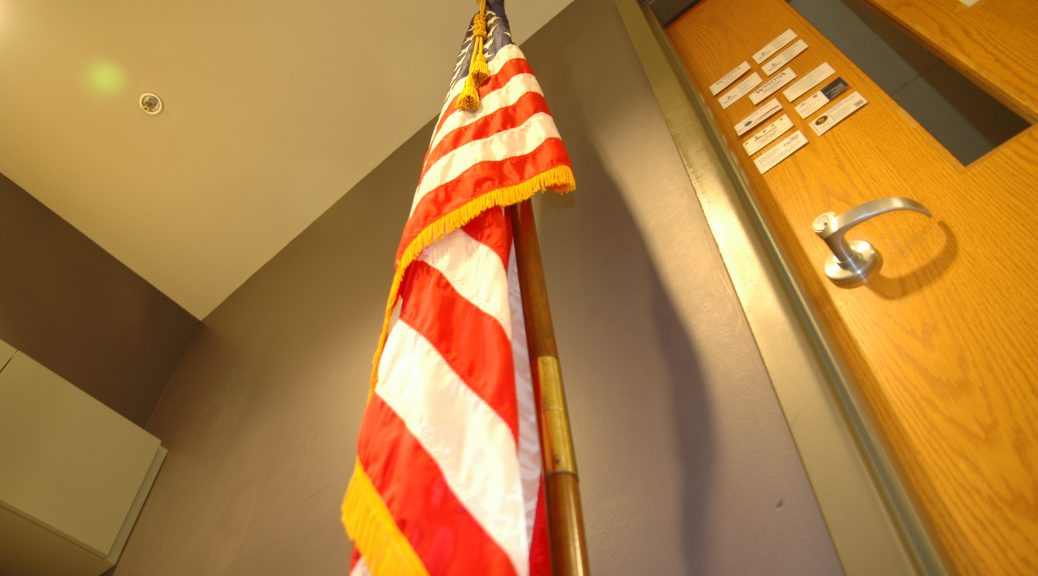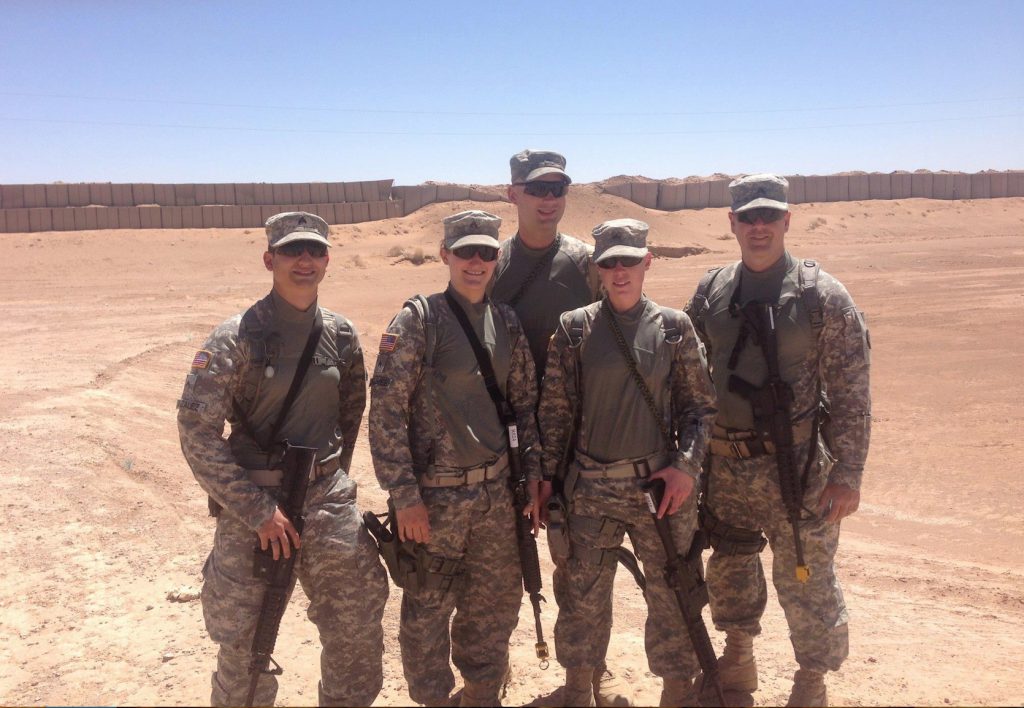Winona State University has seen a limit on the amount of parking permits given to students along with limited space to park which for some leads to frustration.
Winona State Parking Services have a cap on the number of parking permits they sell for residential and commuter parking lots.
For residential lots, with silver, green, tan and maroon parking permits, the cap is the same as the number of spots the university has in those lots.
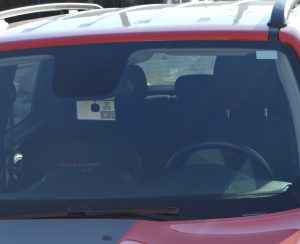
For the silver, green and maroon lots, the annual price of a parking permit is $155. The tan lot parking permits are $85 because there are conferences often at the Tau Center which is where the tan parking lot is.
For commuter lots, the gold and purple parking permits, the cap is a little more than the number of spaces in those lots.
Alisha Syrmopoulos, Winona State’s Parking Services office manager said they do that because people do not stay in the lot for long periods of time.
Gold parking permits are $225 per calendar year. Purple parking permits are $105 per academic year.
Sustainability parking permits are available for students who live in the sustainability house for $155 and Circle or Grey parking permits are offered for motorcycles and mopeds for $35.
Winona State Parking Services also offers a blue parking permit for those with a state-issued handicap permit for $105.
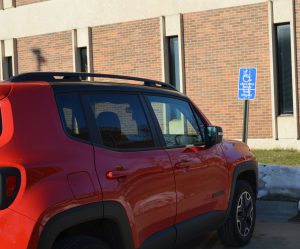
Winona State meets ADA regulations when it comes to handicap spaces but Syrmopoulos said she receives complaints that the amount of spots is not enough.
Syrmopoulos said she gets complaints about not having enough handicap spaces.
With a handicap parking permit, the permit holder is able to park in any open spot on campus. Syrmopoulos said even if someone cannot find a handicap spot Parking Services stills wants to get them as close as possible.
Syrmopoulos said they do the best with what they have.
“We are kind of landlocked. You kind of got to work with what you have and use the space,” Syrmopoulos said.
This is why not everyone who applies for a parking permit will get one.
Syrmopoulos said there is a stack of applications from faculty, staff and students who want a parking permit for this school year.
The process Parking Services use to decide who gets a parking permit is first-come-first-served.
Syrmopoulos said there have been professors who go into the Parking Services Office and tell the student workers they should have priority to get a parking permit.
“I have had faculty sit here and yell at my students and tell my students that they should have priority to these parking permits because if it wasn’t for them the university wouldn’t even be running,” Syrmopoulos said.
She said her response to these professors has been that if there were no students there would be no need for faculty.
“It’s a co-op effort,” Syrmopoulos said.
First-year Winona State student, Kalli O’Brien said she believes the process of getting a parking permit is fair.
She does not agree with the cap on residential parking.
“I live in Sheehan and I’d say I have parked in that parking lot in front of Sheehan less than 10 times for sure,” O’Brien said. “It is so frustrating because I do morning shifts and walking far away in the morning when it’s freezing out sucks.”
At the beginning of the semester, O’Brien was almost going to give up her parking permit because she did not believe it was worth the money.
After talking to her parents O’Brien decided to keep the parking permit because she knew in the winter she would be happy to have it.
Another aspect of the parking permit that frustrates O’Brien is when students in residential parking spots have a permit but never move their car.
“I live on one of the top floors and my roommate and I look down and we can see the cars that have been there for weeks,” O’Brien said. “Why do you even have a car if you’re not using it?”
O’Brien said she believes students who use their cars on a regular basis should be the ones with the parking spot right outside the building.
O’Brien said she would not recommend getting a parking permit to anyone because it is not worth the amount of money.
“Alternate side parking it’s kind of a hassle but it’s more of a hassle doing [a parking permit] and wasting your money,” O’Brien said.
